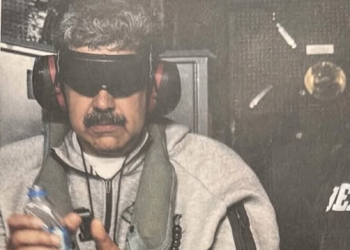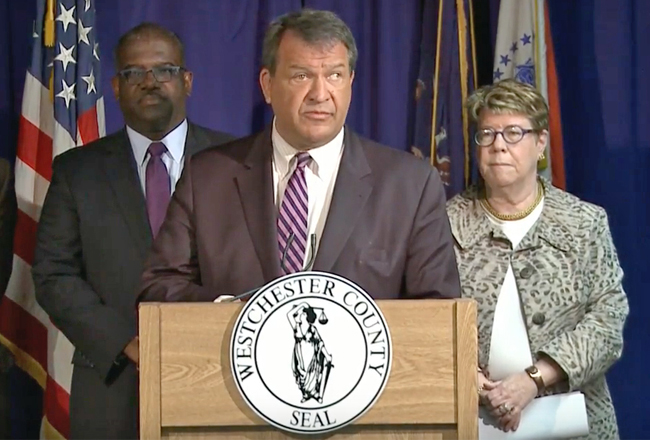 A White Plains lawyer has asked a court to quash subpoenas for his testimony and documents, in a racketeering lawsuit against GlaxoSmithKline in which the drug-maker wants information about health insurance firms that previously sued GSK for selling adulterated drugs.
A White Plains lawyer has asked a court to quash subpoenas for his testimony and documents, in a racketeering lawsuit against GlaxoSmithKline in which the drug-maker wants information about health insurance firms that previously sued GSK for selling adulterated drugs.
Peter D. St. Phillip Jr., a partner in Lowey Dannenberg P.C., filed the motion to quash in White Plains federal court on May 7 to stop a deposition scheduled for the following day. He argued that the request violates attorney-client privilege and work-product doctrine.
St. Philip’s motion states that GSK cannot establish that “no other means” exist to obtain the information it seeks or that the information is crucial to the preparation of its case.
GSK responded that it is not seeking privileged communications between attorneys and clients, a lawyer for Ballard Spahr LLP, Manhattan, the firm that issued the subpoena, wrote in a letter to St. Phillip, “and we have attempted to make that clear in the subpoenas themselves.”
U.S. District Judge Vincent L. Briccetti transferred the motion on May 8 to federal court, Philadelphia, where the racketeering case is being heard.
The controversy traces back to 2010, when GSK was fined $150 million and pled guilty to criminal charges of manufacturing and distributing adulterated drugs made by a subsidiary in Puerto Rico, from 2001 to 2005. The company also agreed to a $600 million civil settlement for selling batches of adulterated drugs to Medicaid and other federal health care programs.
The criminal case concerned four drugs: Avandamet, a diabetes drug with inconsistent ingredients that resulted in sub-potent or super-potent doses; Bactroban, an anti-infection ointment that was contaminated with micro-organisms; Kytril, anti-nausea medication for cancer patients that was made in a potentially non-sterile area; and Paxil, an anti-depressant that was separating and causing some tablets to have no therapeutic effect.
GSK made as much as $5.5 billion a year producing drugs at the Puerto Rico facility, including a dozen drugs not covered by the criminal case.
In 2011, the Blue Cross Blue Shield Association and 38 other health benefit providers sued GSK in Philadelphia, claiming they were fraudulently induced to overpay billions of dollars for adulterated drugs, from 1997 to 2006. The health care providers serve 60 percent of the non-governmental health plans in the U.S., and St. Phillip is a lead attorney.
GSK”™s main defense, according to St. Phillip, is that the lawsuit was filed after the 4-year statute of limitation for racketeering cases and 2-year limitations on claims under state laws.
The pharmaceutical company wants to start the clock at March 2005.
That”™s when news reports were published about law enforcement seizures of drugs at the Puerto Rico facility. Three class-action lawsuits were filed soon after, based on the articles, and St. Phillip advised some of the insurers on settlements.
GSK wants to know when the insurers became aware of the prior cases, starting the clock. St. Phillip says that most of the insurers did not learn about the prior cases until 2009, when his law firm contacted them about a settlement.
Ballard Spahr subpoenaed St. Phillip on April 23 to appear for a deposition on May 8 and to produce “non-privileged documents” and communications about Lowey Dannenberg”™s involvement in the previous cases.
A magistrate judge in Philadelphia already denied GSK”™s request for more discovery in a May 2 order, St. Phillip says in his motion to quash, but Ballard Spahr has refused to withdraw the subpoena.
Ballard Spahr attorney Leslie E. John disputed that position.
The judge “did not rule that the documents sought in the subpoenas ”“ or documents that are ”˜essentially identical”™ to them ”“ are privileged,” she wrote in a letter to St. Phillip”™s attorney, William P. Harrington. “Your clients are obligated to comply with the subpoenas.”
St. Phillip says his testimony would reveal no new information. Officials for the health insurers have already testified about the topic, he says, and they have provided millions of pages of documents that should suffice to answer GSK”™s questions.
“The entire premise of the subpoena rests,” he argues in his motion to quash, “on the far-fetched notion that the testimony of 39 corporate witnesses on this topic (prepared by Mr. St. Phillip and is team) was somehow misleading or erroneous.”














